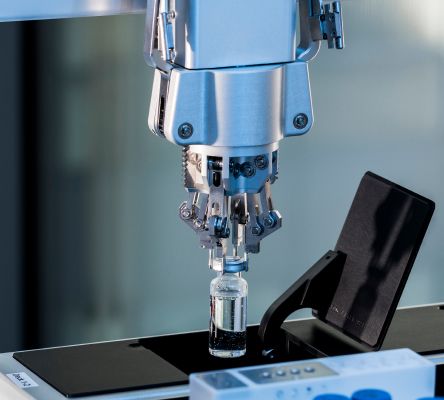- Bone Health
- Immunology
- Hematology
- Respiratory
- Dermatology
- Diabetes
- Gastroenterology
- Neurology
- Oncology
- Ophthalmology
- Rare Disease
- Rheumatology
Bioeq Signs Another Marketing Deal for Ranibizumab Candidate
Ahead of receiving regulatory approval for a "wet" age-related macular degeneration biosimilar candidate, a broad-based commercialization deal is inked.
Bioeq has signed a deal with Teva Pharmaceutical Industries to commercialize a ranibizumab biosimilar candidate (FYB201) in the European Union, Canada, Israel, and New Zealand. Bioeq is a joint venture between Polpharma Biologics Group and Santo Holding.
The biosimilar candidate references the ophthalmologic agent Lucentis and is intended for the treatment of neovascular (“wet”) age-related macular degeneration (nAMD). In nAMD, abnormal growth of blood vessels under the macula and retina lead to swelling and bleeding that changes the position of the macula and distorts or clouds central vision.
“Worldwide, at least 25 to 30 million people are affected by age-related macular degeneration. The launch of a biosimilar ranibizumab can increase market competition, reduce cost, and expand patient access with proven analytical and clinical similarity to the original product,” Polpharma, a Warsaw, Poland-based company, said in a statement.
Bioeq has previously contracted with Coherus BioSciences, of Redwood City, California, for the distribution of FYB201 in the United States.
Bioeq does not yet have regulatory approvals for the marketing of FYB201, although it has reached the biologics license application submission stage, according to Polpharma.
Bioeq has previously received development guidance from the FDA and the European Medicines Agency regarding preclinical and clinical development of this potential biosimilar.
A multi-country phase 3 trial was begun in 2015 and Bioeq was hopeful that this would demonstrate equivalency of FY201 to Lucentis and lead to regulatory approvals. Polpharma said the phase 3 clinical assessments for FYB201 have demonstrated comparable efficacy in patients with nAMD.
FYB201 was originally licensed from Formycon, a German company, and subsequently developed by Bioeq.
Bioeq has anticipated commercialization in the United States as early as 2020 and in the European Union in 2022; however, neither geographic area has yet approved a ranibizumab biosimilar.
The company has also been working to develop an aflibercept biosimilar, referencing Eylea. That developmental agent, FYB203, also was licensed from Formycon and is intended for the treatment of nAMD.
Also, Polpharma is developing biosimilar versions of natalizumab (Tysabri; multiple sclerosis), vedolizumab (Entyvio; immunology) and ipilimumab (Yervoy; oncology). Of these, the natalizumab candidate is furthest along in development, having reached the clinical development stage.
Newsletter
Where clinical, regulatory, and economic perspectives converge—sign up for Center for Biosimilars® emails to get expert insights on emerging treatment paradigms, biosimilar policy, and real-world outcomes that shape patient care.

